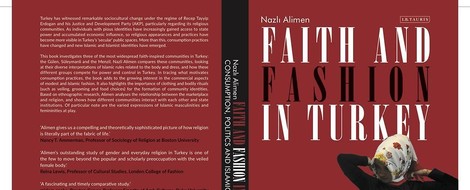Your podcast discovery platform
Curious minds select the most fascinating podcasts from around the world. Discover hand-piqd audio recommendations on your favorite topics.

piqer for: Globalization and politics Global finds Climate and Environment
Javier is a Berlin-based multimedia journalist. He completed a MA in International Journalism at City, University of London and is focused on humanitarian and conflict issues.
With experience in several countries, he's covered the refugee crisis, Turkey's coup attempt and the Kurdish conflict.
Among others, his work has been published at ABC News, Al Jazeera, Channel NewsAsia, RBB, IRIN News, El Confidencial, Público or Diario ABC.
Podcast: Fashion And Politics In Turkey's Religious Communities
Many people still think conservative Muslim communities make up a monolithic, homogeneous group with little differences between each other.
That couldn't be more untrue—especially when we talk about fashion, that huge market you may never have heard of.
When Islam and neoliberalism merge, they create a new Muslim identity. And that has social, economic and political implications.
Turkey, a country that has lived an enormous change since Recep Tayyip Erdogan came to power in 2003, is the perfect example. Nazli Alimen has studied the evolution in her book "Faith and Fashion in Turkey: Consumption, Politics and Islamic Identities". In this episode of Turkey Book Talk, a very interesting podcast about Turkey, she talks with William Armstrong about her work.
In a country that has been fiercely secular for decades (and still is, at least in theory), where until only ten years ago veiled women weren't allowed at university, the creation of a powerful and urban religious middle-class has been key for Erdogan to consolidate his regime.
The conversation touches on some thought-provoking points. Firstly, on the idea that today, in opposition to what many claim, Muslim fashion is more trendy than religious. Facts like the ever-changing way of wearing the headscarf, the influence of Audrey Hepburn in Rome Holiday or Erdogan and his wife Emine becoming some sort of fashion icons are proof in that regard.
Another interesting issue they discuss is how the focus is always on women. Even if Muslim men are also supposed to follow certain rules of dressing, and even if back then in Turkey there were bans centered on male believers (for instance concerning certain types of moustache), women always carried more weight on their shoulders.
Men, religious dogma, Muslim fashion. The only thing that hasn't changed is the fact that women never stop being targeted.